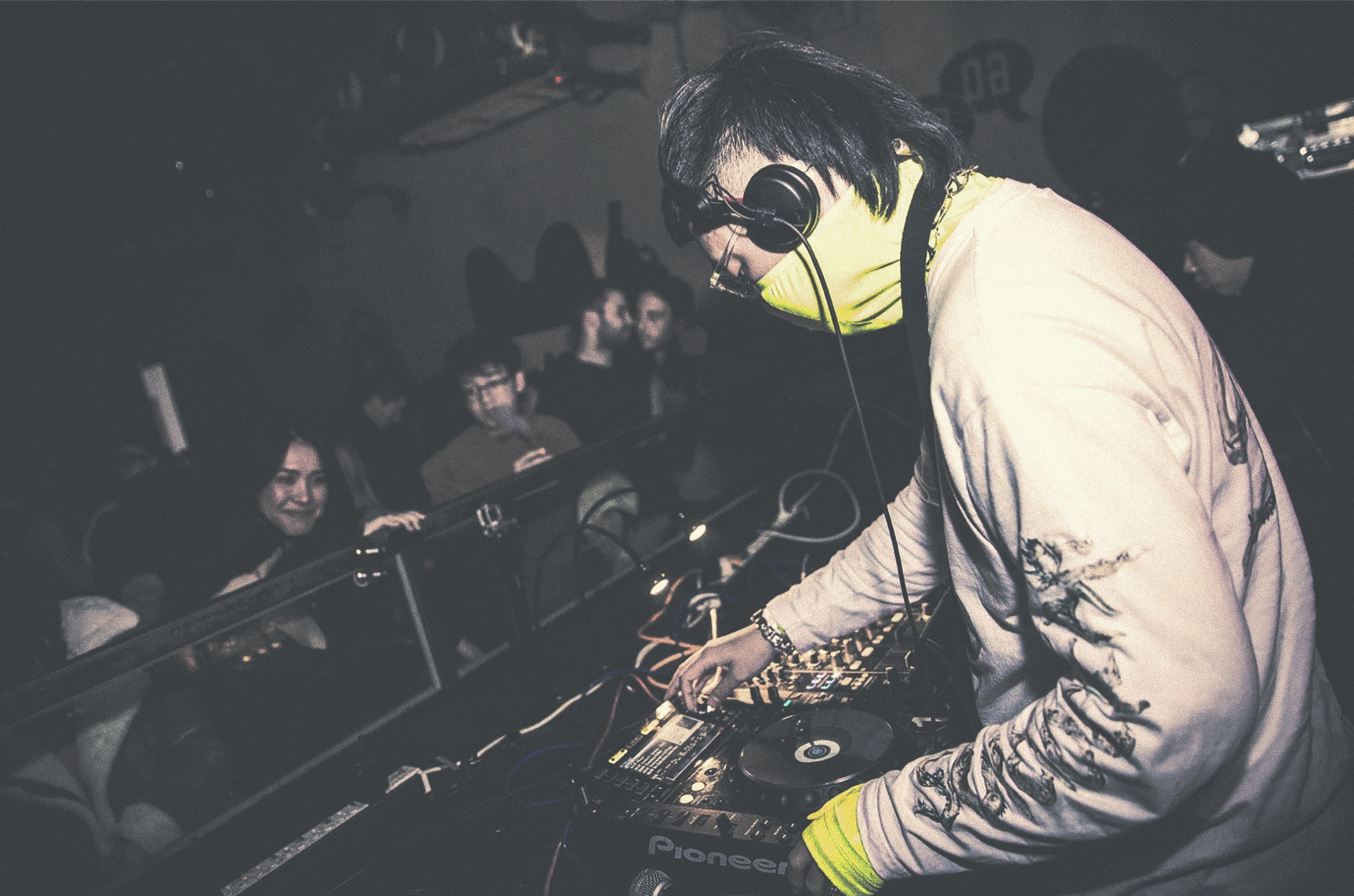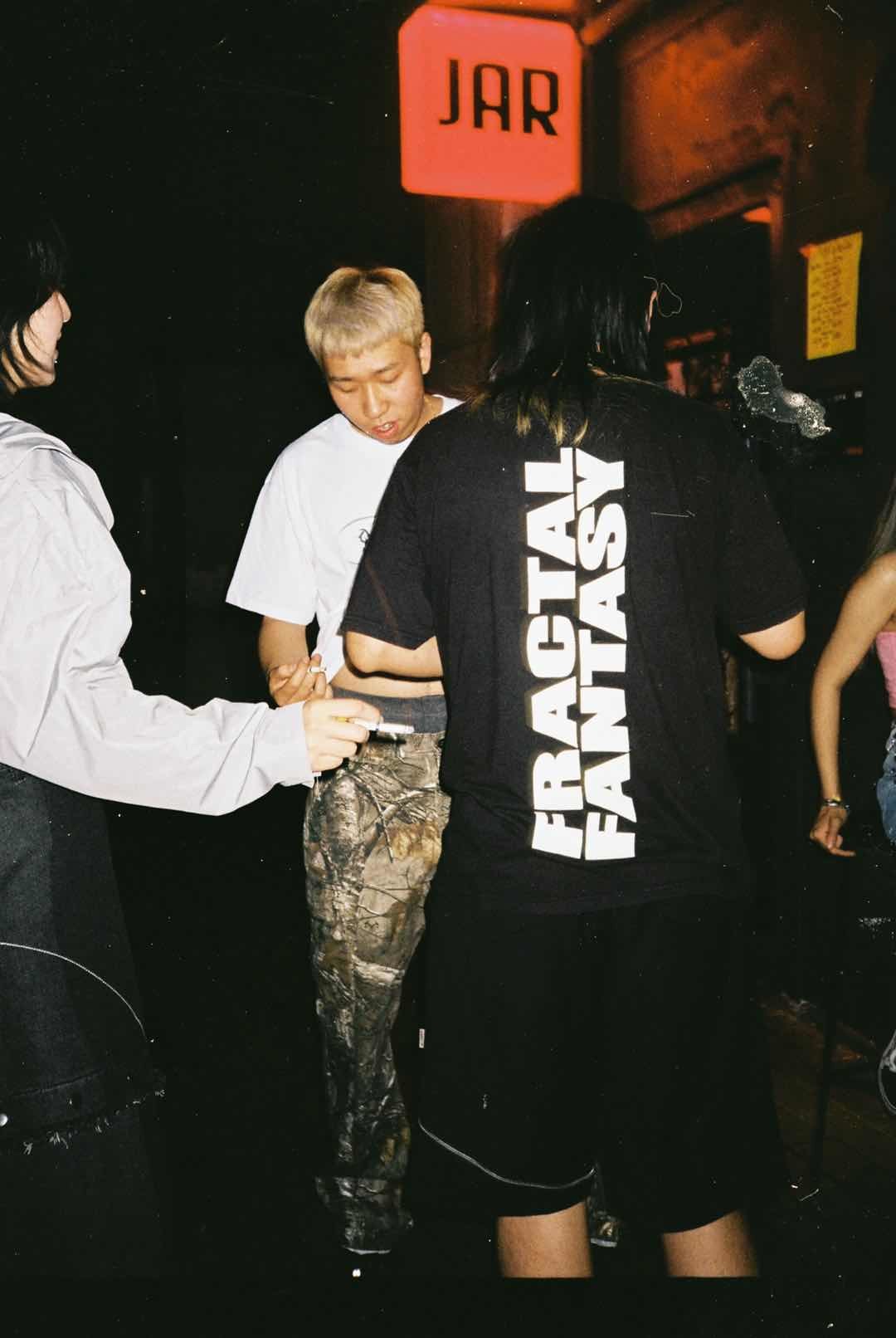 Features
Features
Who owns music culture in a globalised world?
In the age of the Internet, ownership of musical subculture is being challenged and redefined
The saying goes that “house music never really left Chicago”.
Like all of our favourite maxims, these words contain a vestige of truth and a healthy handful of paradox. In a globalised society built upon and connected by the internet, how can any culture truly exist only within one geo-location? How even can a culture be claimed under ownership by any one social group? And if we accept that culture cannot be owned by any one group or location, then who the hell are the keyholders of musical subculture?
Meet PUZZY STACK, real name Eric Zhang, one of Beijing’s musical pioneers of the moment and a man whose eccentric name is certainly equalled by his avant-garde music and fashion taste.

PUZZY STACK founded Beijing-based label S!LK丝 in 2016. At first, he was playing mostly techno until connecting with Shackup, whose Beijing-based bar played a lot of UK bass and dubstep. "I immediately clicked with the sound and the rhythm,” he told Mixmag Asia (via the internet of course) when discussing his journey to becoming one of China’s leading proponents of bass and experimental electronic music.
While the dance floor was his first exposure to the new sounds coming out of the UK in 2014-2016, the internet was where Eric forged a far deeper connection with the music and the culture behind it.
“I began to study and find a lot of labels and collectives: Fade to Mind, Night Slugs, Mall Music INC., Teklife, Fractal Fantasy, Tempa and so on. This music brought me so much, it's like a mental addiction. It also gave me a lot of visual inspiration to connect the music with fashion.”

The depth with which he connected with musical subcultures originating in London and Chicago (places he is yet to visit) via the Internet is unusual. The timing of when it happened, however, is unsurprising.
Grime exploded across the globe during the middle years of the decade, led by the culture’s most marketable superstars like Stormzy and Skepta, and subsequently paved the way for an even heavier sound — UK drill — to travel cross-borders for the first time. Meanwhile, across the Atlantic in Chicago, the same story of a subculture exploding across borders was unfolding. Footwork, propelled from the underground to the surface in the late 2000s via online video content, was hitting the world stage in a big way after decades of musical obscurity outside of its host city.
It was 2017 when grime really arrived in Asia, marked by Stormzy's headline appearance at Clockenflap in Hong Kong. Think about that for a second. Less than three years after grime music was considered mainstream in the UK (it was 2014 when Stormzy started really making waves there with a more mainstream crowd), a shoulder to shoulder main-stage crowd at a festival on the other side of the world were finishing his lines for him. That is mad; particularly so given that 100 years prior to Clockenflap 2017, the cargo ship carrying Stormzy’s wax record would have taken over three months just to reach Hong Kong.
This is a story of globalisation, a story underpinned by two words: speed and accessibility. Speed — because the internet facilitates the near-instant transmission of cultural information across the world, allowing cultures to quickly trickle into new regions and ethno-social groups. Accessibility — because digital music, online video hosting and digital publishers have made music and the cultural context and history that underpins it available to the entire planet. Gone are the days where physical ownership of music, in the form of records and the brick-and-mortar businesses that sell and play them, was the ticket to musical subculture consumption.
So if physical ownership of music is the past, what then is the future of musical subcultures and their footprint?
This is a controversial question, and views within the industry vary greatly.
Steelo, a founding member of Chicago’s Footwork collective The Era, once told the Chicago Tribune that the culture he grew up with is being eroded by artists and fans who have no direct physical connection with the city. “When somebody from the outside does footwork music, at least come in and learn the culture”, he says in reference to the foreign producers and “weekend escapaders” who have caught onto the culture in recent years.

Eric on the other hand sees it from a different angle. “In our Internet age, subculture is a product of rebirth — a cultural collision between the old and the new. You can create a new youth culture referencing your own understanding of the past, you can connect with the world and other artists, resulting in more cultural exchange. The emergence of subcultures (via the Internet) makes it possible for people to find themselves.”
While their views are, on the surface, very different, there is perhaps a key point of intersection here. They both recognise that the deeper context of culture is often, for better or for worse, partially lost in digital transmissions of culture; short videos, social post captions, and memes simply were not designed to deliver it. What these forms of communication do however enable is a vast acceleration in the speed of cultural change and in the accessibility of cultural content.
So, whether they operate on the streets, the Internet, or a combination of both, it will be the people who have the ability — via their knowledge, their connections, their passion, and a hyper-connected digital media space — to culturally innovate at speed and deliver their output at scale who will be the undisputed owners of culture.
[via Leebone photography, Chicago Tribune, Pohoda Festival & YETI OUT]


